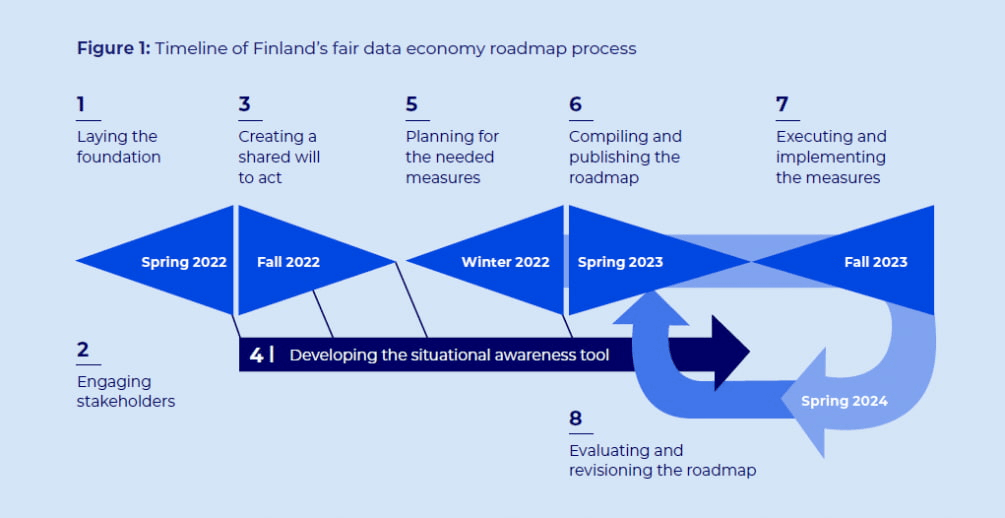- Home
- News And Events
- News
- Lessons To Build A Roadmap For A Fair Data Economy
Lessons to Build a Roadmap for a Fair Data Economy

In the 11th paper of the Digital Revolution and New Social Contract research program, we take a closer look at the work conducted by the Finnish Innovation Fund Sitra on how to address the existing power disparities in data markets and strive for a fairer data economy.
The future data economy holds great potential for our economies and societies. However, the transition to a more inclusive model, where the rights of individuals are protected and the needs of all stakeholders are considered, has often been stalled. Even Finland, a country that ranks invariably high in international comparisons measuring the development of digitalization, lags behind in data-driven value creation, partly due to the lack of a concrete national data strategy and better coordination channels between stakeholders. Against this backdrop, the Finnish innovation fund, Sitra, embarked on a mission to create a roadmap that would help Finland succeed in the future data economy, on fair terms, and through close public-private collaboration. In our latest paper, its researchers share the key lessons learnt throughout the process.
In a fair data economy, markets would be open for enterprises of all sizes, consumers would have real choice in the technologies and digital services they use and interference in democratic processes would be prohibited.
Today, the data economy is still plagued by many power imbalances and inequities. For example, local data economies face an uneven competitive landscape, due to the overwhelming influence of Big Tech and large corporations, resulting in the consolidation of market dominance among already established players. Because the data economy affects us all, it is crucial to ensure that its risks and benefits are shared equitably across society. In the EU, the current decade has seen a remarkable focus on the concept of a fair data economy, with nearly EUR 2 billion already invested through various instruments to help align local data markets with European values and standards. However, there is still a long way to go, as the efficient use of data for business transformation and human-centered public services is still in its infancy in many places across the globe, including Finland.
Finland is one of Europe’s digital champions, but that has not always translated into a corresponding ability to seize the potential of a data driven society. In fact, until recently, Finland lacked national data strategy or even an action plan focused on promoting the data economy.
In 2022, Sitra created established a platform with stakeholders from the public, private, and third sectors to to identify key bottlenecks and develop a national roadmap for a fair data economy. The first step was to decide on the general direction the data economy should develop in order to increase Finland’s competitiveness and economic resilience, with strategic priority areas and aspirational goals for each policy space. Having agreed on this shared ‘Will to Act,’ the roadmap stakeholders moved on to identify concrete actions to improve the data economy in practice, and establishing responsible parties to be accountable for their progress, resources, and outcomes. Lastly, to make progress in the focus areas more visible and provide up-to-date information to decision-makers, a Data Economy Monitoring Tool was developed using both quantitative and qualitative indicators.
Three key lessons may be drawn from the Finnish experience for policymakers looking to replicate its success abroad:
1. Strengthen collaboration and implementation: The transition to a fair data economy requires supportive measures, unified coordination, active stakeholder collaboration, and action-oriented practices, such as experiments, trials, and collaborative projects.
2. Proceed through experimentation: Experimentation should be used to test the functionality and effectiveness of new solutions. The result will be higher quality and more innovative policy measures that are known to work.
3. Use metrics to support decision-making: The development of the data economy is still poorly understood and there is a lack of information on its progress and impact to support decision-making.
Solutions in the data-driven economy are not created by simply replicating the old way of doing things. Rather, it is the multiple collaborations between the public, private, and third sectors that are key.
Learn more about our research program on the Digital Revolution and the New Social Contract:

